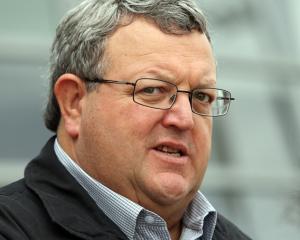Gerry Brownlee's plan to address the country's electricity supply and cost issues, like that of his National government predecessor Max Bradford, is based on a flawed philosophy but could be rectified, says John de Bueger.
Let us suppose that you are a rally driver, and receive a letter from the organisers advising you of a new rule requiring your car to be modified before next year's event.
The foot brake is to be relocated into the passenger's compartment, so that the driver steers and changes gears, while the navigator applies the brakes.
Ridiculous? Well, no more so than some of the Government's proposed electricity system reforms - in particular, switching Tekapo A and B from Meridian to Genesis.
While it makes sense for Genesis to have more hydro assets, and Tekapo is as good as any, Lake Tekapo also contains one third of Upper Waitaki storage, which, being the highest, is the most valuable.
Between them, the Upper Waitaki valley lakes, Tekapo and Pukaki, hold about 70% of national hydro storage.
As hydro still provides about 60% of our power, to get through dry winters, storage management is crucial.
To split Upper Waitaki storage - which all drains into the same river - between two separate organisations with quite different generation assets and commercial drivers, is just plain bonkers.
Water from Tekapo flows through eight of Meridian's stations downstream, and it is hard to see how wrecking the flexibility of Meridian's generating chain will produce cost savings; particularly in the South Island.
Gerry Brownlee is, in effect, giving each SOE a cast-iron excuse to personally blame him for future winter crises.
This Government's fundamental flaw is its philosophical belief that market competition solves everything.
Well, it doesn't - as Max Bradford's 1990s electricity sector reforms so clearly demonstrated.
Before Electrocorp was dismembered, New Zealand had the world's cheapest power - based on old hydro paid off years before.
Splitting Electrocorp effectively forced taxpayers to re-buy what they already owned, and instead of there being just one CEO on about $350k per year (from memory), there are now several being paid over $1 million, plus multiple management teams duplicating what one used to do.
The old system worked well because it was based on a merit system, wherein each power station was ranked according to its actual cost of generation.
The lowest-cost stations (old hydro), carried base load, and as demand increased, stations came online in order of merit - subject, of course, to grid restrictions, spinning reserve and lake levels.
As demand fell, the situation reversed respectively.
Under the old system, the generation price averaged out, with low-cost, old hydro balancing out the newer higher-cost thermal stations.
Under the ridiculous new system - which is unique in the world - they all get paid the same high spot price that the last one online gets: the one with the least merit.
The net result is that power bills have skyrocketed about 70% in the last 10 years, and Meridian, which mainly owns old hydro, now pays hundreds of millions in dividends.
As Meridian is state-owned, it's basically double taxation in disguise. Brilliant.
The old system might have been deceptively simple, but cash-strapped governments don't like having to finance new power stations ahead of increasing demand - if they aren't fully used from day one.
In a classic demonstration of heads-in-the-sand, ostrich behaviour, Max Bradford's expert advisers convinced him the private sector, funded by market forces, would build the new stations.
Well, needless to say, no private organisation wants an asset that sits partly idle either, so surprise, surprise, we have had power crises ever since.
This is why an overriding watchdog (whether called the Electricity Commission or not), is essential, to ensure orderly investments in new generation/transmission actually happen.
The first Electricity Commissioner, Roy Hemmingway, doesn't think all the proposed reforms are wrong.
For example, making generators sort out their hedging, and buy back dry-winter savings are sound moves.
Mr Hemmingway also correctly pointed out that the consumer has been treated more harshly than the commercial/industry sectors, and that it takes a few years for such an investment-heavy system as a country's electricity system to settle down.
The fundamental point is, though, that until the philosophy is correct, nothing ever settles down properly.
Of late, one has had the impression that key investment decisions were actually being taken, and that at last, that side of the equation was starting to work.
The asset swap aspect of these reforms will slow this process by causing more uncertainty, and do nothing to sort out the ridiculous pricing mechanism.
At some point we have to stop shuffling bits around like deck chairs on the Titanic.
Before he gets branded a bigger wrecker than Max Bradford, perhaps it's time Gerry Brownlee sat down, had a cup of tea, and worked out how to fix the pricing model before disillusioned South Island electors fix him.
- John de Bueger is a New Plymouth writer and engineer.







